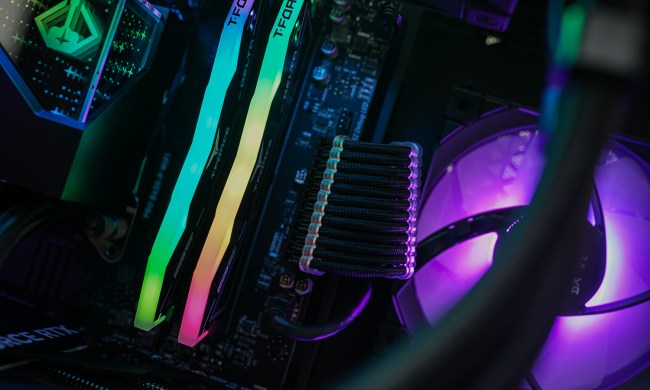Chinese memory manufacturer Netac received its first batch of DDR5 modules from Micron, and the company announced Thursday that it’s pushing the modules to their limits. IT Home reports that Netac has the modules in its research and development department, and is currently overclocking them to hit an impossibly fast speed: 10,000MHz.
Most DDR4 modules hit the 3,200MHz mark, while high-end DDR4 kits can climb above 6,000MHz. Still, that’s just over half the speed Netac is aiming for. The company is currently testing DDR5 modules for overclocking, manually adjusting voltages and timings to achieve the desired speed. You probably shouldn’t expect to see 10,000MHz RAM on the shelf anytime soon (if at all). If anything, the stunt provides a look into how fast DDR5 can be once it arrives in consumer machines.

Reports suggest Netac is aiming for 10,000MHz, but it’s not clear if that’s the true speed or just a formal mark. DDR modules operate at half of the rated speed, so a DDR4 module rated for 4,800 MT/s (mega transfers per second) operates at 2,400MHz. It has double the data rate, though (DDR actually stands for “double data rate”), meaning the module effectively operates at 4,800MHz. Micron DDR5 modules are only validated up to 6,400 MT/s, so Netac will have to push them quite a bit.
Regardless, DDR5 alone should offer a big boost to consumer machines, and it’s closer than you may think. Leaks suggest AMD is introducing DDR5 to its desktop platform as soon as 2022, and Intel is bringing the new generation to desktops this year. Even at well below 10,000MHz, the most inexpensive DDR5 kits should operate as fast as the fastest DDR4 kits. Plus, DDR5 modules should be able to operate at those speeds with tight timings and low voltages, helping maintain system stability.
As for when or if Netac hits 10,000MHz on DDR5, we don’t know, but it’s probably not the last memory manufacturer that will perform such a stunt.



